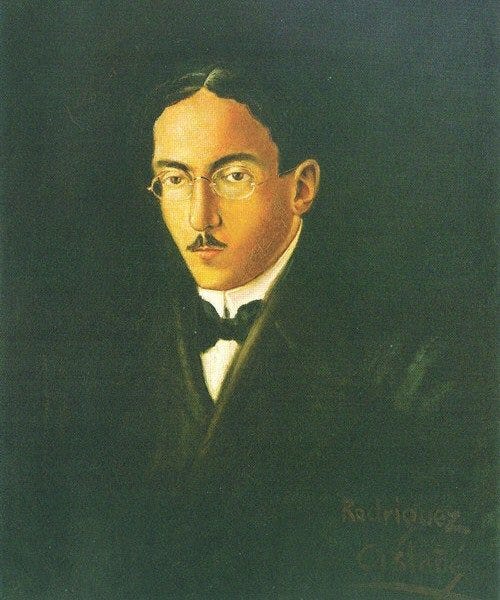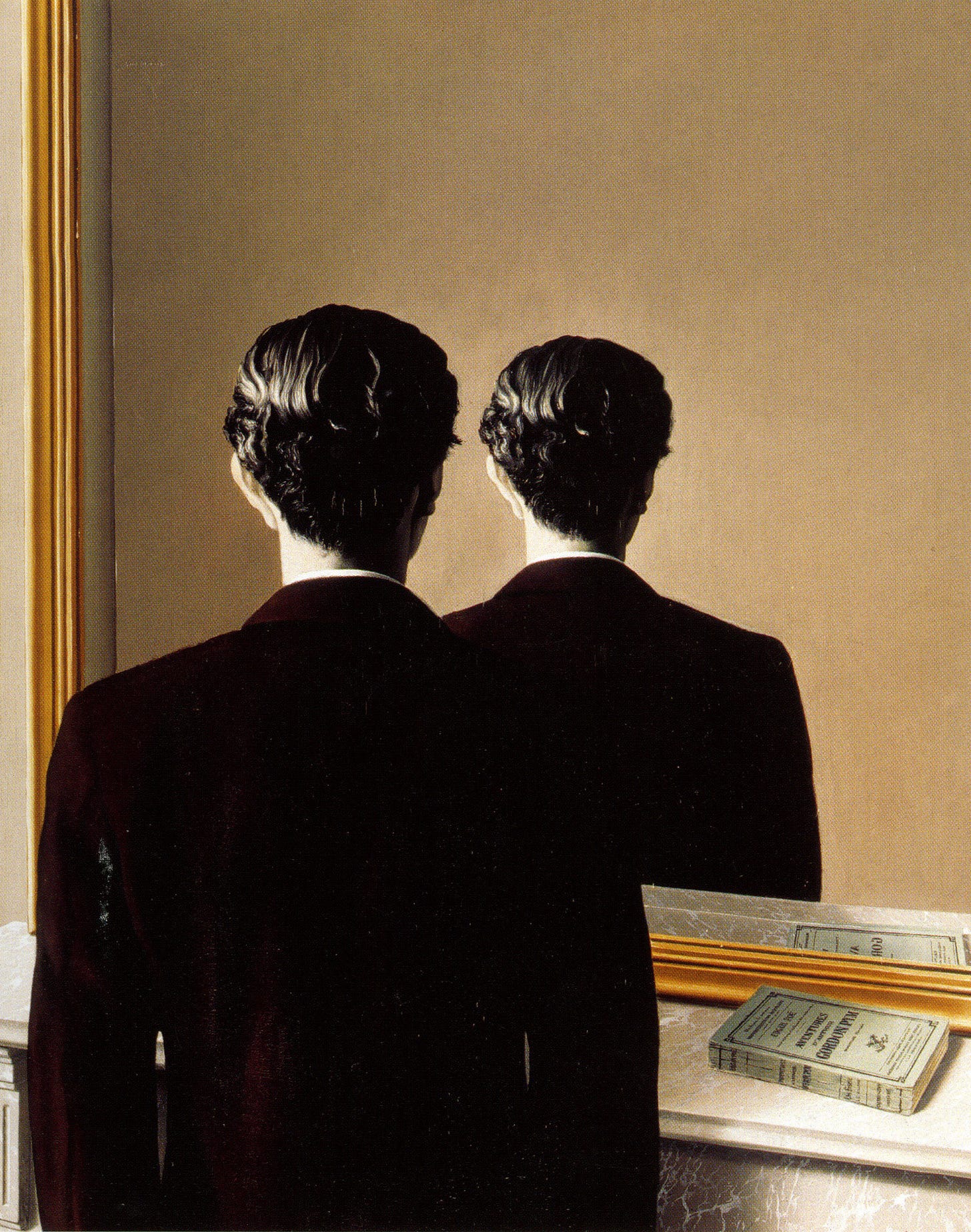Pessoa on Isolation & Selfhood
“Nostalgia for what never was.”
One of the most haunting meditations on isolation and alienation comes from the Portuguese author Fernando Pessoa. He writes about feeling a nostalgia for something which never was, and the painful awareness of potential wasted.
As he puts it:
“The feelings that hurt most, the emotions that sting most, are those that are absurd - The longing for impossible things, precisely because they are impossible; nostalgia for what never was; the desire for what could have been; regret over not being someone else; dissatisfaction with the world’s existence. All these half-tones of the soul’s consciousness create in us a painful landscape, an eternal sunset of what we are”
It’s a poetic reflection on the elusive nature of consciousness, as loss and longing become intertwined with one’s sense of self. As Pessoa put it elsewhere, “I’m the space between what I’d like to be and what others have made me.”
In this painting by Magritte, titled La Reproduction Interdite (1937) we see a powerful depiction of the sense of alienation that comes with such a loss of self.
We see a young man gazing into a mirror. Instead of his face, we see the back of his head reflected back at him. The book on the mantelpiece is by Edgar Allen Poe, titled “The Narrative of Arthur Gordon Pym of Nantucket.”
It brings to mind a memorable passage from Pessoa’s “The Book of Disquiet”, on the nature of mirrors:
“Man shouldn’t be able to see his own face--there’s nothing more sinister. Nature gave him the gift of not being able to see it, and of not being able to stare into his own eyes.
Only in the water of rivers and ponds could he look at his face. And the very posture he had to assume was symbolic. He had to bend over, stoop down, to commit the ignominy of beholding himself.
The inventor of the mirror poisoned the human heart.”
The painting also hints at the inscrutable nature of the self, and the fact that there is no “authentic” subjectivity without this reflexive gap. In Lacanian psychoanalysis the “true” self is therefore itself a fiction. There is nothing underneath the mask, just another mask. This is why true self-knowledge can occur only when one rejects such a self as itself an illusion. The transition from loss (absent self) to lack (self as absence) is therefore strictly speaking liberating. Nothing is truly lost.
Pessoa had a similar conception of the self. His famous “heteronyms”(he had at least 70 of them) were not simply personas or literary alter-egos, but rather various manifestations of this very gap. The self emerges not as the progenitor of character, but as its elusive “quilting point.” In other words, there is no “true Pessoa” save for this very fracturing, which is in that sense his “true” self.
It also reminds me of the beginning of a poem by Rilke, titled “I am much too alone in this world, yet not alone.”
I am much too alone in this world, yet not alone
enough
to truly consecrate the hour.
I am much too small in this world, yet not small
enough
to be to you just object and thing,
dark and smart.
I want my free will and want it accompanying
the path which leads to action;
and want during times that beg questions,
where something is up,
to be among those in the know,
or else be alone.
(…) I want to unfold
It’s an apt description of what might be deemed the no-self, or the notion of a self which in its very unraveling becomes oddly tangible. And in this contradictory motion a sense of subjectivity emerges which compels us to write and reflect.
This “unfolding” of the self, or what Pessoa characterized as “an eternal sunset of what we are”, is therefore something forever elusive and yet never ending. And perhaps this is what it means to truly find oneself, namely to look for something whose loss is its own gain.
Julian
Thank you for reading my newsletter. My goal is to make learning easy and accessible for anyone. To support my work, consider becoming a paying subscriber. Thank you!




Worth a second read to “mirror” the messages here. The painting is “absurdly” wonderful and unforgettable. It is difficult, if not impossible, to see ourselves with reflective eyes, just as the mirror in the painting cannot “stare” face to face. Fascinating.
Whew, heady! Thank you